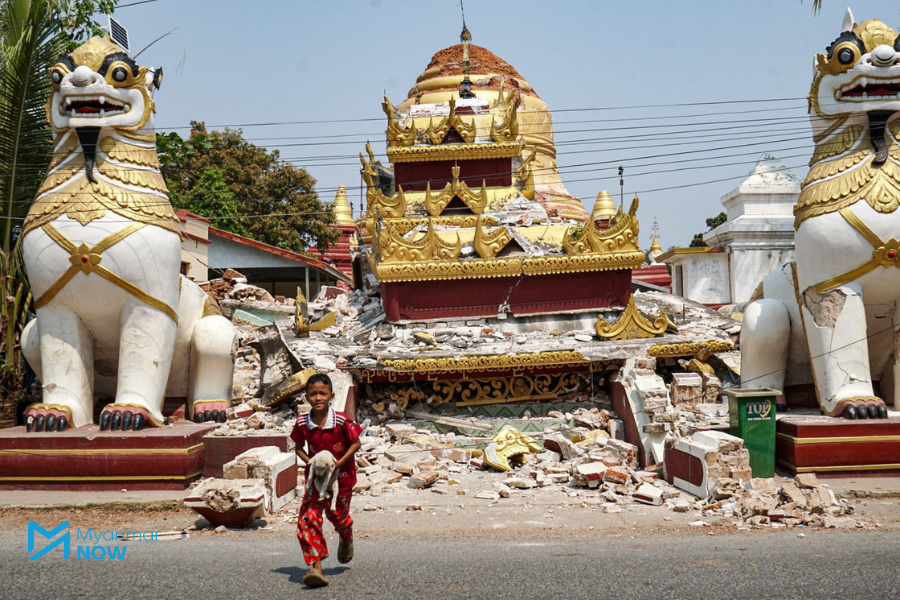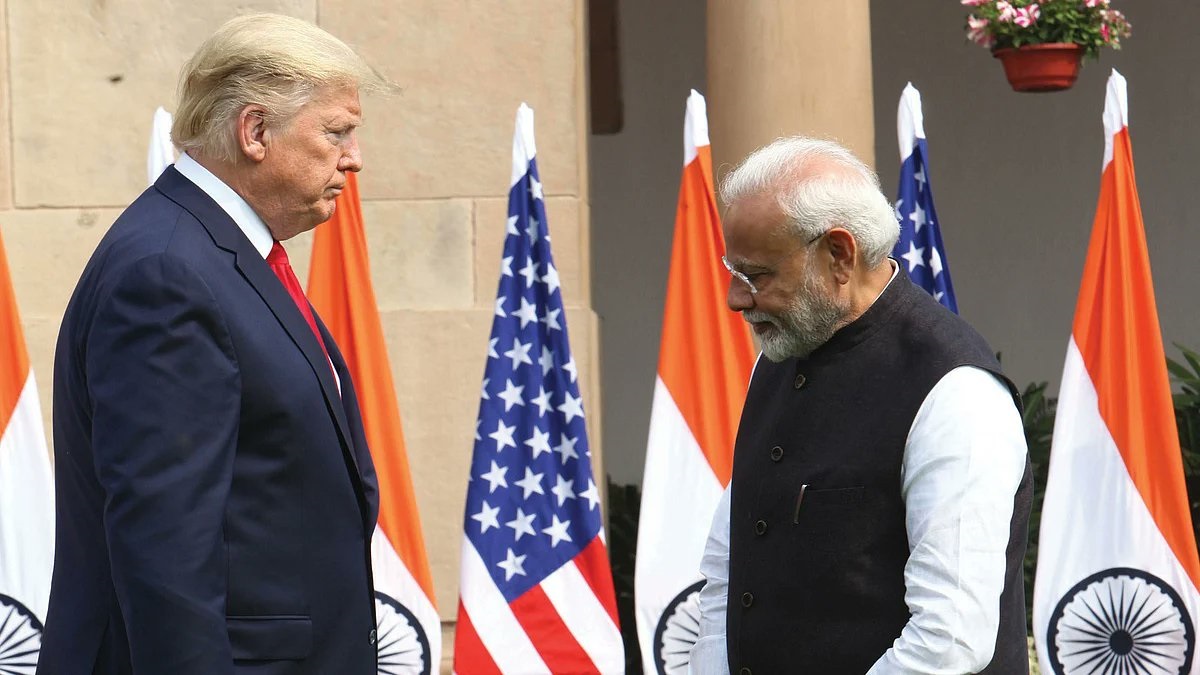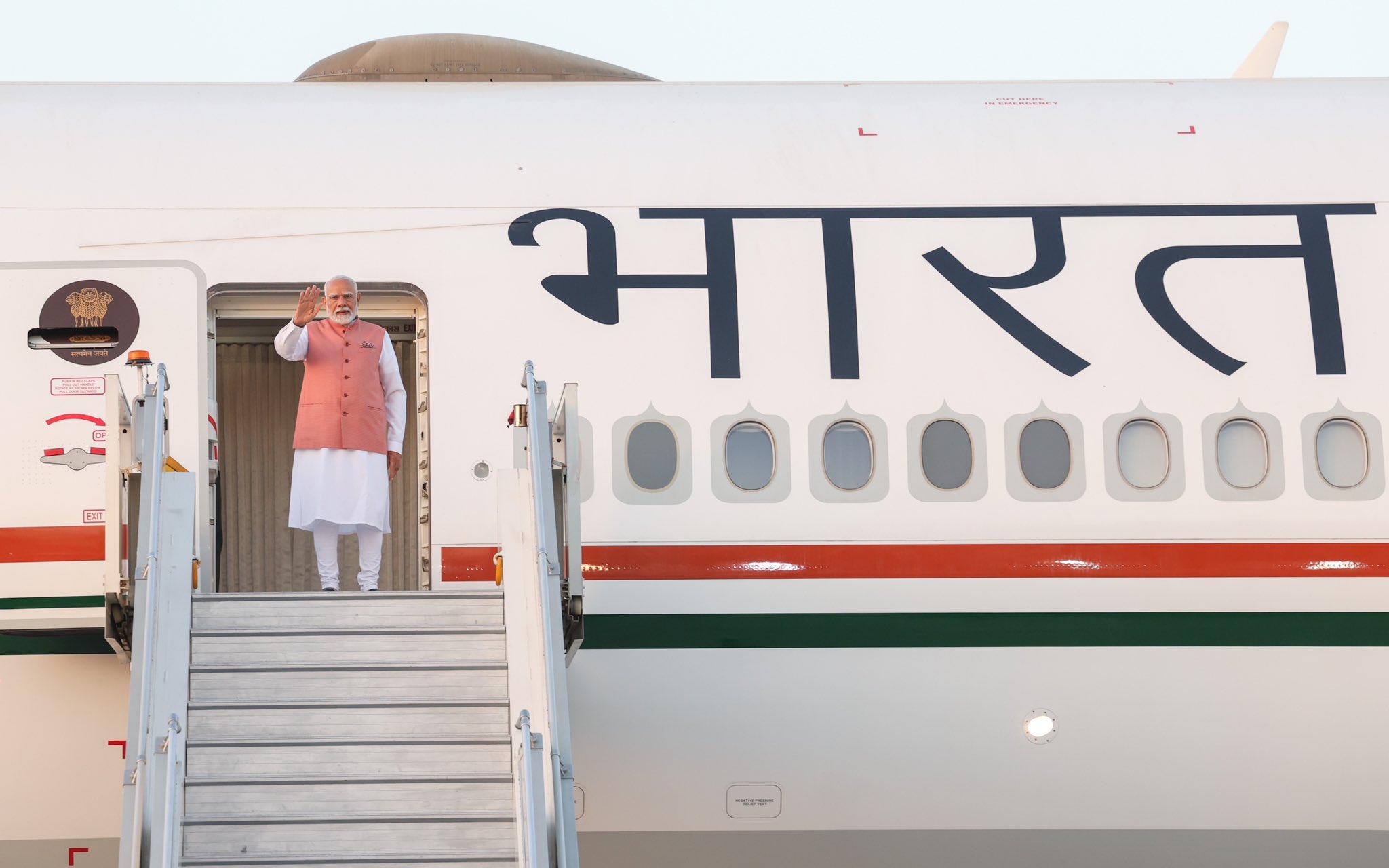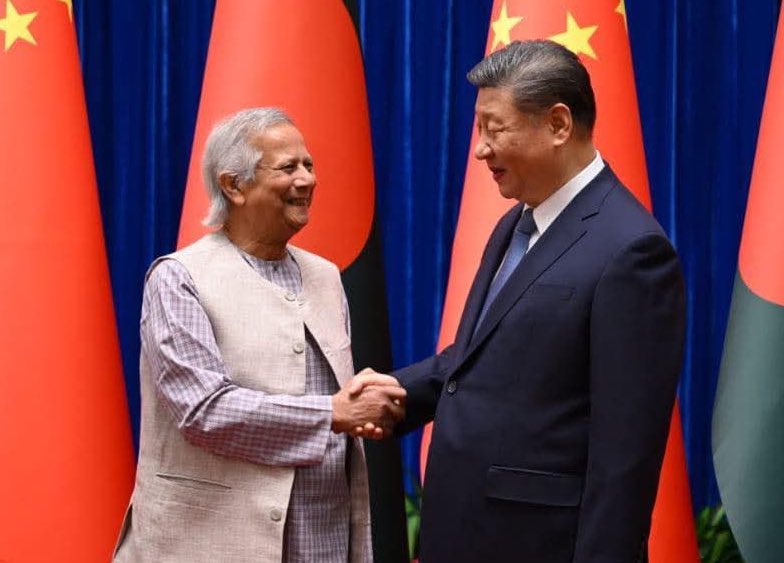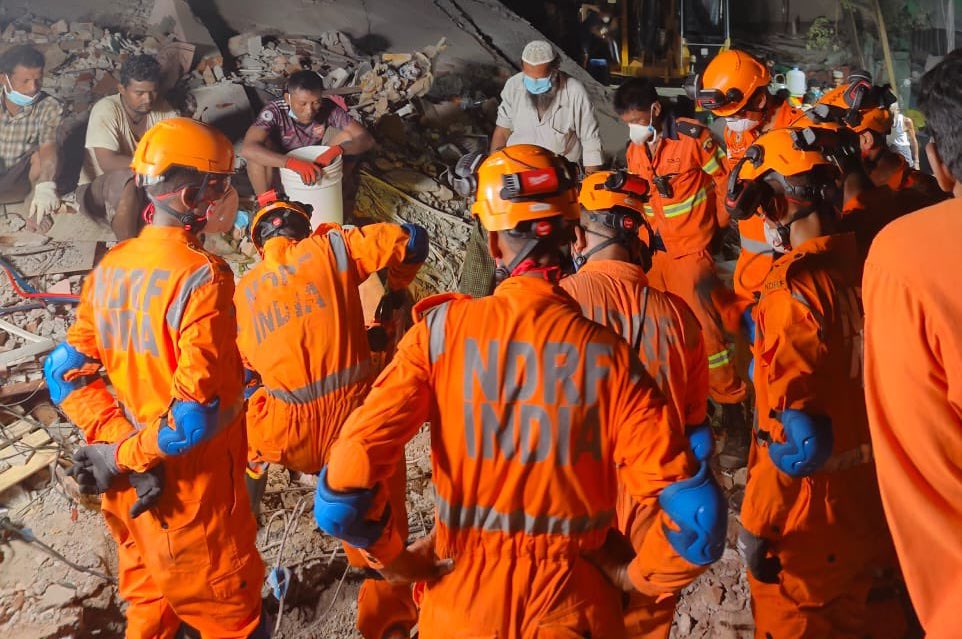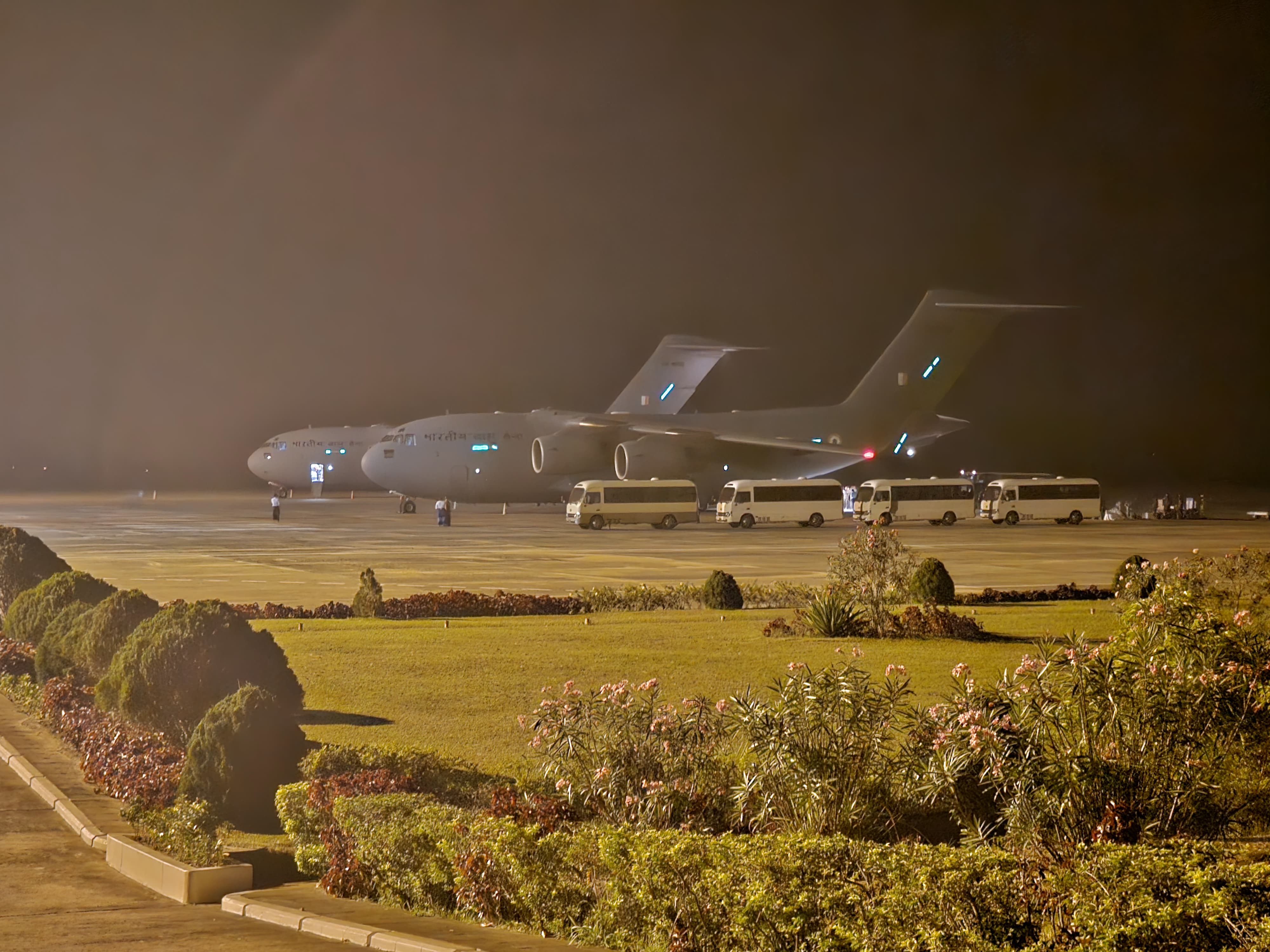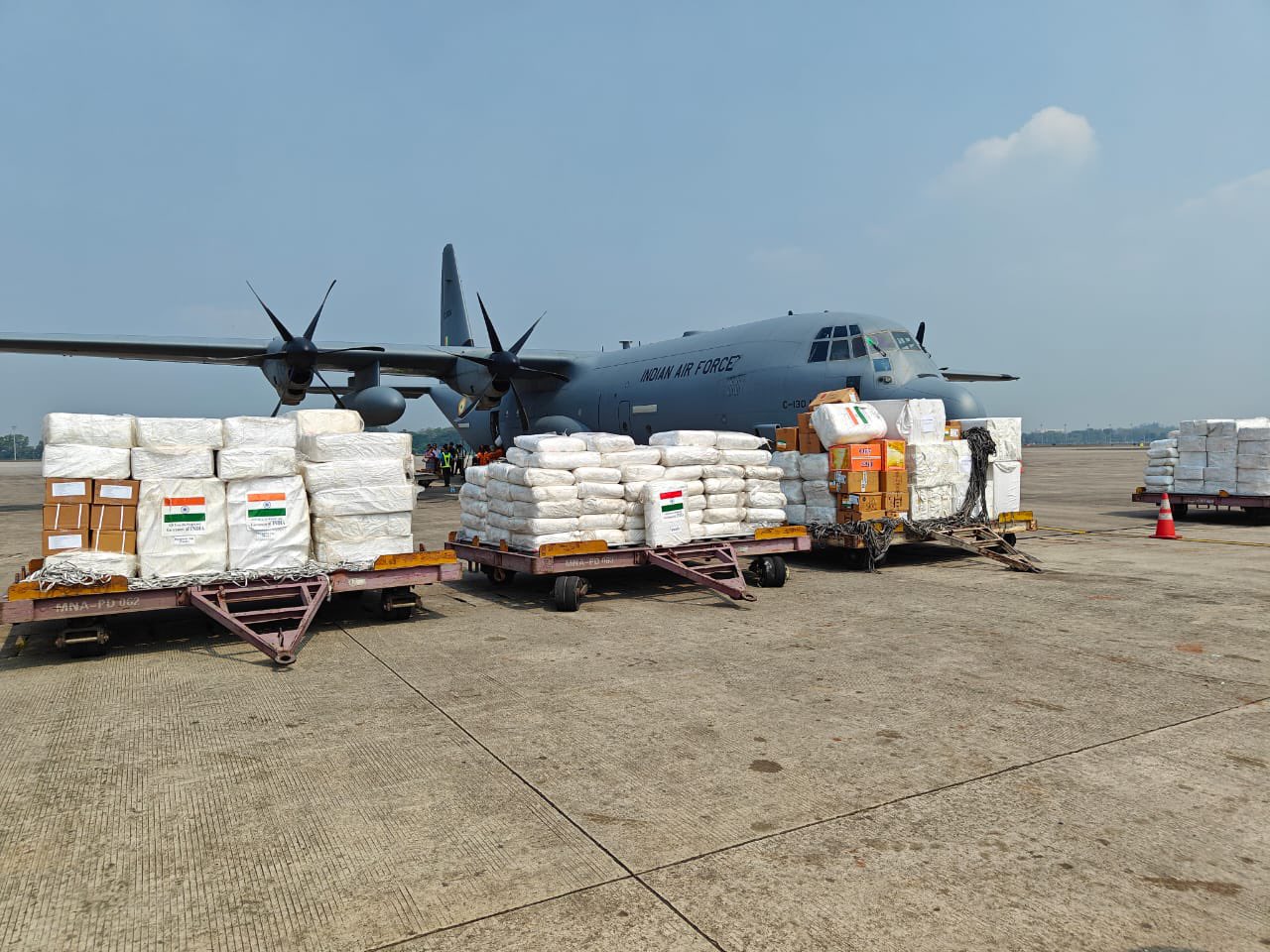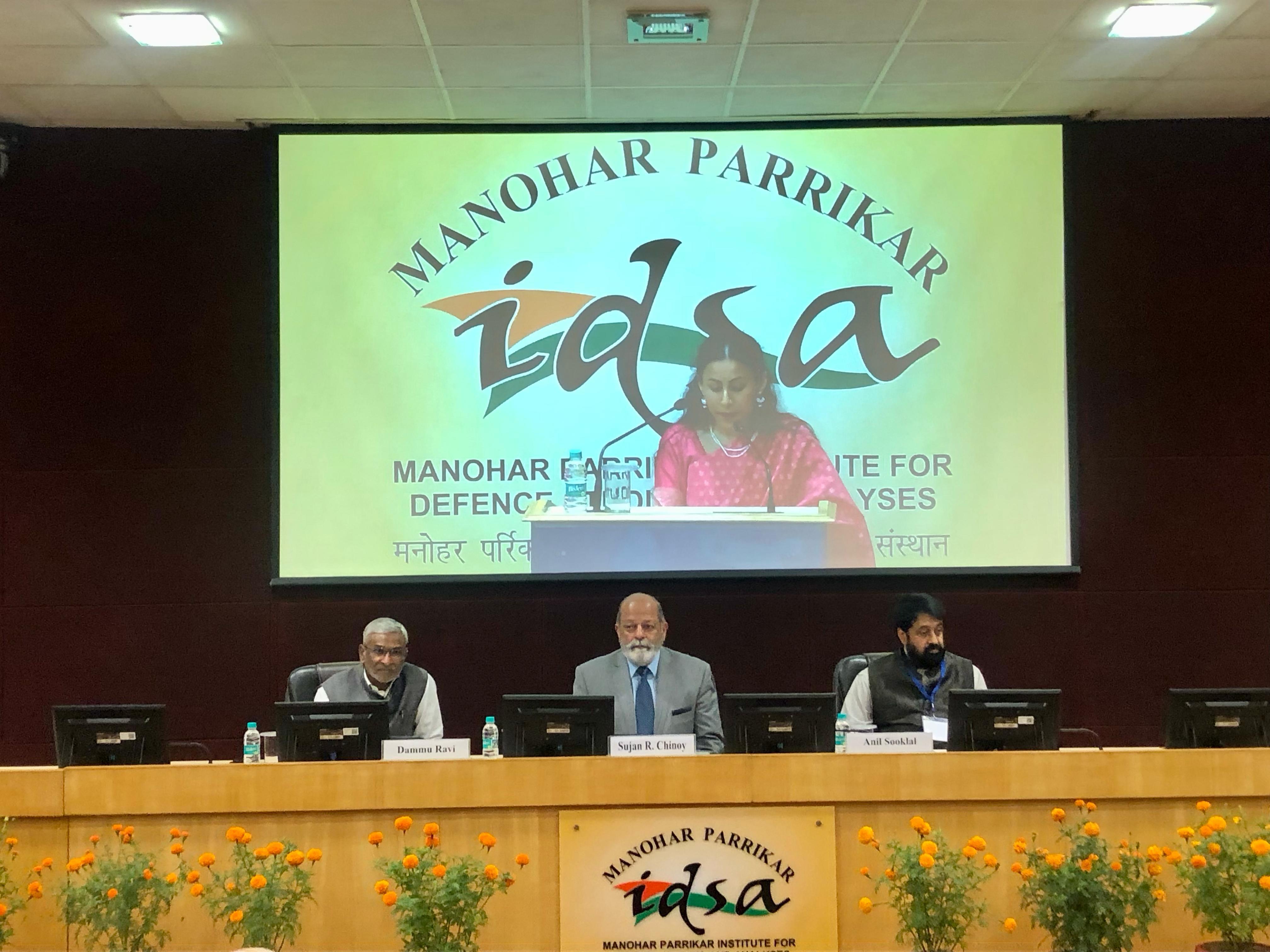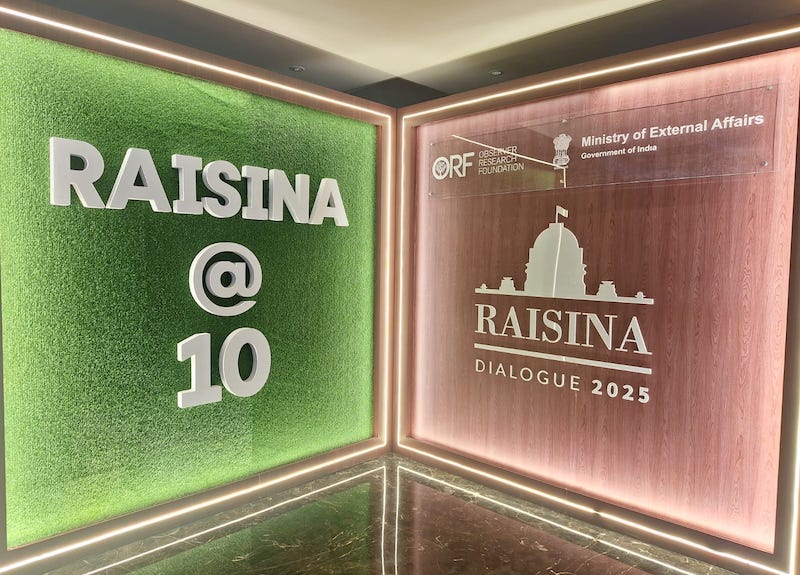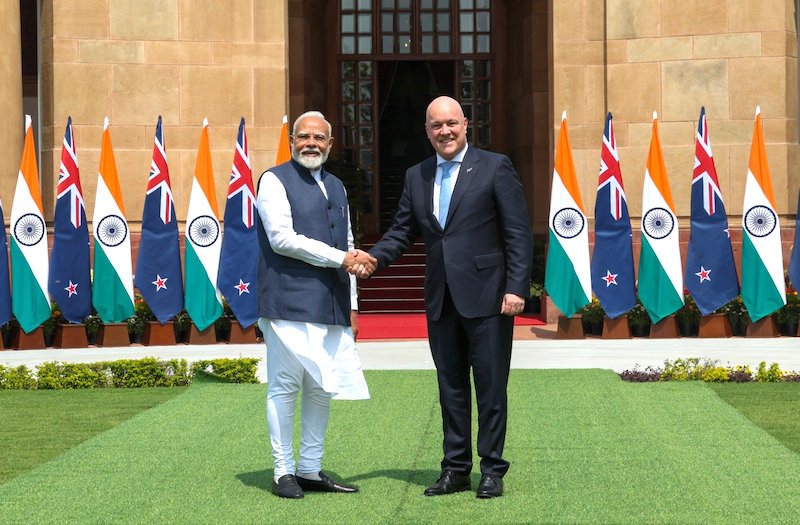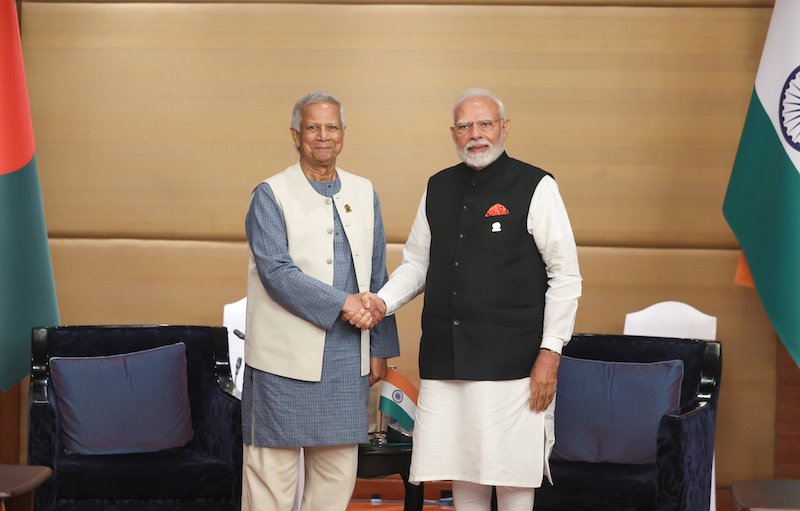 Narendra Modi with Muhammad Yunus (L). (Photo: X/@narendramodi)
Narendra Modi with Muhammad Yunus (L). (Photo: X/@narendramodi)
New Delhi: The prime minister, Narendra Modi, met the chief advisor of Bangladesh’s interim government, Professor Muhammad Yunus, on the sidelines of the 6th BIMSTEC Summit in Bangkok, on Friday. This crucial meeting marked their first official engagement since Yunus assumed office in August last year, following the ousting of the former prime minister of Bangladesh, Sheikh Hasina.
The discussions, held amid tensions between India and Bangladesh, represent a significant diplomatic effort to recalibrate bilateral relations, which was strained in the recent months.
The meeting took place after both leaders attended an informal dinner hosted by the prime minister of Thailand, Paetongtarn Shinawatra, for visiting heads of state and government.
Met Mr. Muhammad Yunus, Chief Adviser of the interim government of Bangladesh. India remains committed to a constructive and people-centric relationship with Bangladesh.
— Narendra Modi (@narendramodi) April 4, 2025
I reiterated India’s support for peace, stability, inclusivity and democracy in Bangladesh. Discussed… pic.twitter.com/4UQgj8aohf
Diplomatic Context
Relations between New Delhi and Dhaka have faced considerable challenges since Sheikh Hasina’s government was ousted in August 2024 through a student-led uprising. The change in leadership brought Yunus to power as head of an interim government tasked with overseeing a transitional period. Despite initial diplomatic exchanges – including Modi’s congratulatory message to Yunus and a letter marking Bangladesh’s Independence Day on March 26 – the two leaders had not met directly until now.
The timing of this meeting is particularly significant given Yunus’s recent visit to China, where he made remarks suggesting that India’s northeastern states could benefit economically by extending linkages through Bangladesh as part of China’s economic sphere. These comments raised concerns in New Delhi about Dhaka’s growing proximity to Beijing, adding urgency to the bilateral dialogue.
Profsssor Muhammad Yunus is presenting a photo to Prime Minister Narendra Modi during their bilateral meeting in Bangkok on Friday. The photo is about Prime Minister Narendra Modi presenting a gold medal to Professor Yunus at the 102nd Indian Science Congress on January 3, 2015 pic.twitter.com/lsikvMOWT4
— Chief Adviser of the Government of Bangladesh (@ChiefAdviserGoB) April 4, 2025
Key Matters Addressed
Sources familiar with the discussions revealed that several critical issues were addressed during the meeting:
*Protection of Minorities: Modi expressed concerns over the safety and security of Bangladeshi minorities, particularly Hindus. He urged the Bangladeshi government to ensure their protection and thoroughly investigate cases of violence against them. This has been a longstanding concern for India, especially following reports of attacks on Hindu communities after the change in government.
*Extradition of Sheikh Hasina: The issue of former Sheikh Hasina's extradition was raised by Yunus. After being ousted as Bangladesh’s prime minister, she flew to India and took refuge in the country, as reported by India Sentinels earlier. However, Modi did not comment further on this matter, stating that it would not be proper to discuss it publicly at this time.
*Border Security: Modi emphasized the need for strict enforcement of laws to prevent illegal border crossings, which are crucial for maintaining security and stability along the 4,096-kilometre shared border.
*Regional Dynamics: The meeting addressed Bangladesh’s growing ties with China and Pakistan, which have implications for India’s strategic interests in the region. Modi reaffirmed India’s commitment to a stable and democratic Bangladesh, highlighting the importance of maintaining positive bilateral relations based on pragmatism and mutual respect.
*Diplomatic Tone: Sources indicated that Modi advised Yunus to avoid rhetoric that could negatively impact the environment between the two countries, aiming to foster more constructive dialogue going forward.
*Water-Sharing Agreements: Renewing discussions on the Ganges Water Treaty was another focal point. Bangladesh stressed the importance of addressing water-sharing disputes to ensure equitable resource distribution, a matter of critical importance to both nations.
*Regional Security Cooperation: Both leaders agreed on the need for enhanced cooperation under BIMSTEC to tackle transnational challenges such as terrorism, extremism, and climate change.
*Rohingya Crisis: The ongoing Rohingya refugee situation was reportedly discussed, with Yunus seeking India’s support for repatriation efforts. Modi assured continued assistance while highlighting India’s humanitarian contributions to alleviating the crisis.
Yunus’s China Comments
The meeting came shortly after Yunus’s visit to China, where his comments about economic linkages had raised eyebrows in New Delhi. In what appeared to be a conciliatory gesture, Yunus’s office had clarified that these remarks were made with “honest intentions” and were not meant to undermine India’s interests.
An Indian official who requested anonymity noted that while Modi appeared receptive to this explanation, he emphasized that mutual trust must form the foundation of future cooperation. “The prime minister made it clear that while India remains committed to supporting Bangladesh, statements that could be interpreted as favouring other regional powers over India’s interests are not conducive to strengthening bilateral ties,” the official said.
BIMSTEC Leadership Transfer
The summit also saw Yunus assuming chairmanship of BIMSTEC (Bay of Bengal Initiative for Multi-Sectoral Technical and Economic Cooperation) – a role that underscores Bangladesh’s importance in regional affairs. This transfer of leadership provides Dhaka with an opportunity to demonstrate its commitment to regional cooperation and potentially ease tensions with New Delhi through multilateral engagement.
The external affairs minister of India, S Jaishankar, had earlier engaged with the foreign affairs adviser of Bangladesh, Mohammad Touhid Hossain, during the Indian Ocean Conference in Oman, laying groundwork for renewed dialogue. These preparatory discussions appear to have facilitated the more substantive exchange between Modi and Yunus in Bangkok.
Challenges and Road Ahead
Despite the positive tone of the meeting, significant challenges remain in the India-Bangladesh relationship. The shift in Dhaka’s foreign policy under Yunus has introduced uncertainties, particularly regarding Bangladesh’s stance on regional connectivity projects and its engagements with Beijing.
Indian security analysts are closely monitoring developments in Bangladesh’s approach to border management and its handling of anti-India elements that may be operating from Bangladeshi territory. For New Delhi, ensuring that Dhaka does not become a security concern is paramount.
Additionally, domestic political dynamics in both countries will likely influence bilateral progress. India’s strategic interests in maintaining a stable relationship with its eastern neighbour remain unchanged, while Yunus’s interim government faces the complex task of stabilizing Bangladesh ahead of its own electoral process.
Observers and commentators in New Delhi’s academia, thinktanks, and diplomatic circles who shared their thoughts with India Sentinels see the Modi-Yunus meeting at the BIMSTEC Summit as a cautious yet promising step toward addressing tensions in the India-Bangladesh relationship. They generally agree that both nations will come to terms with geopolitical realities, especially given their geographical proximity and shared interests, and realize that sustained dialogue and mutual respect will be crucial for fostering long-term cooperation.
With Bangladesh now chairing BIMSTEC, its role in shaping regional initiatives will be closely watched by New Delhi. For now, this engagement signals a shared intent to address pressing issues collaboratively – “a positive development for regional stability” in South Asia.

